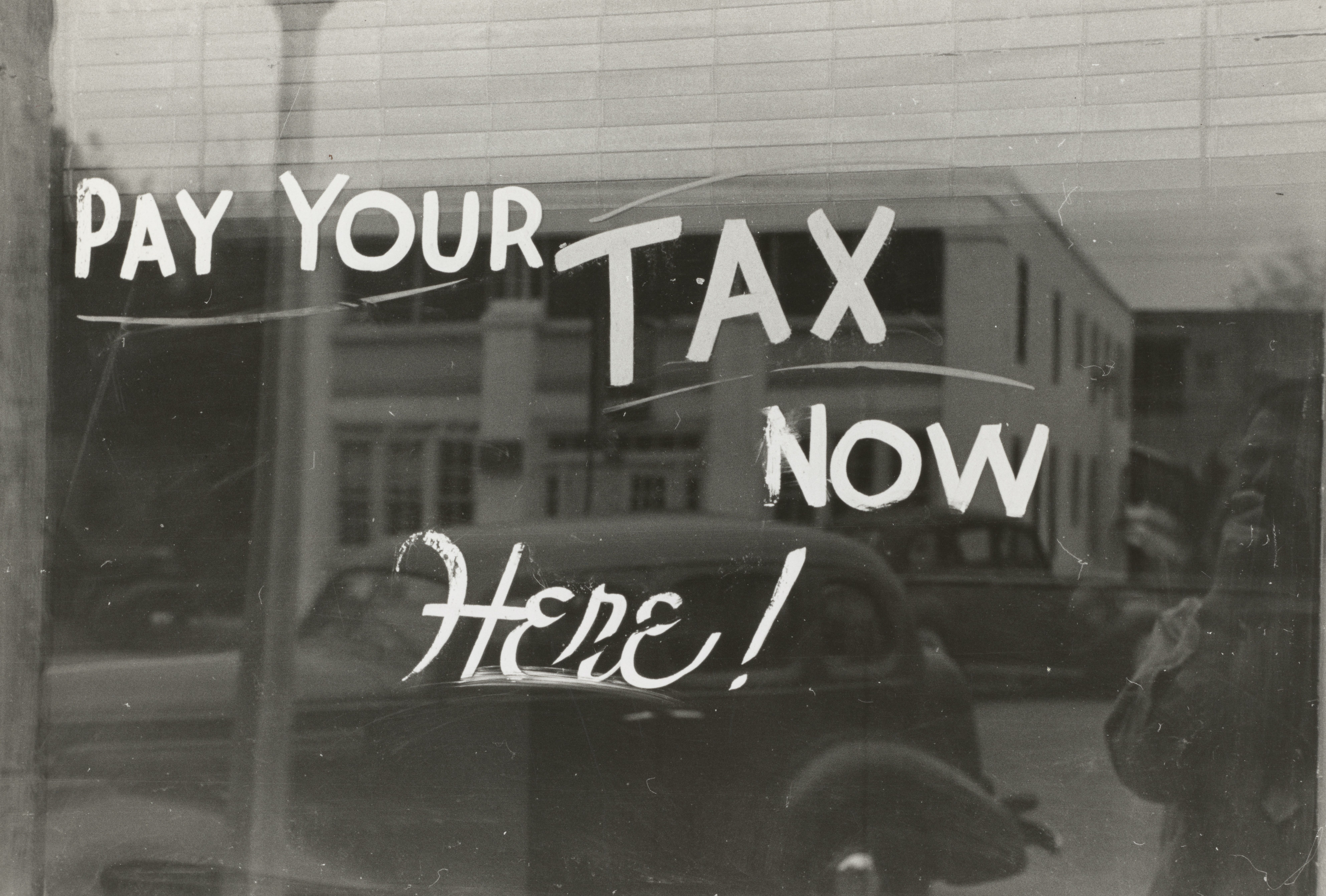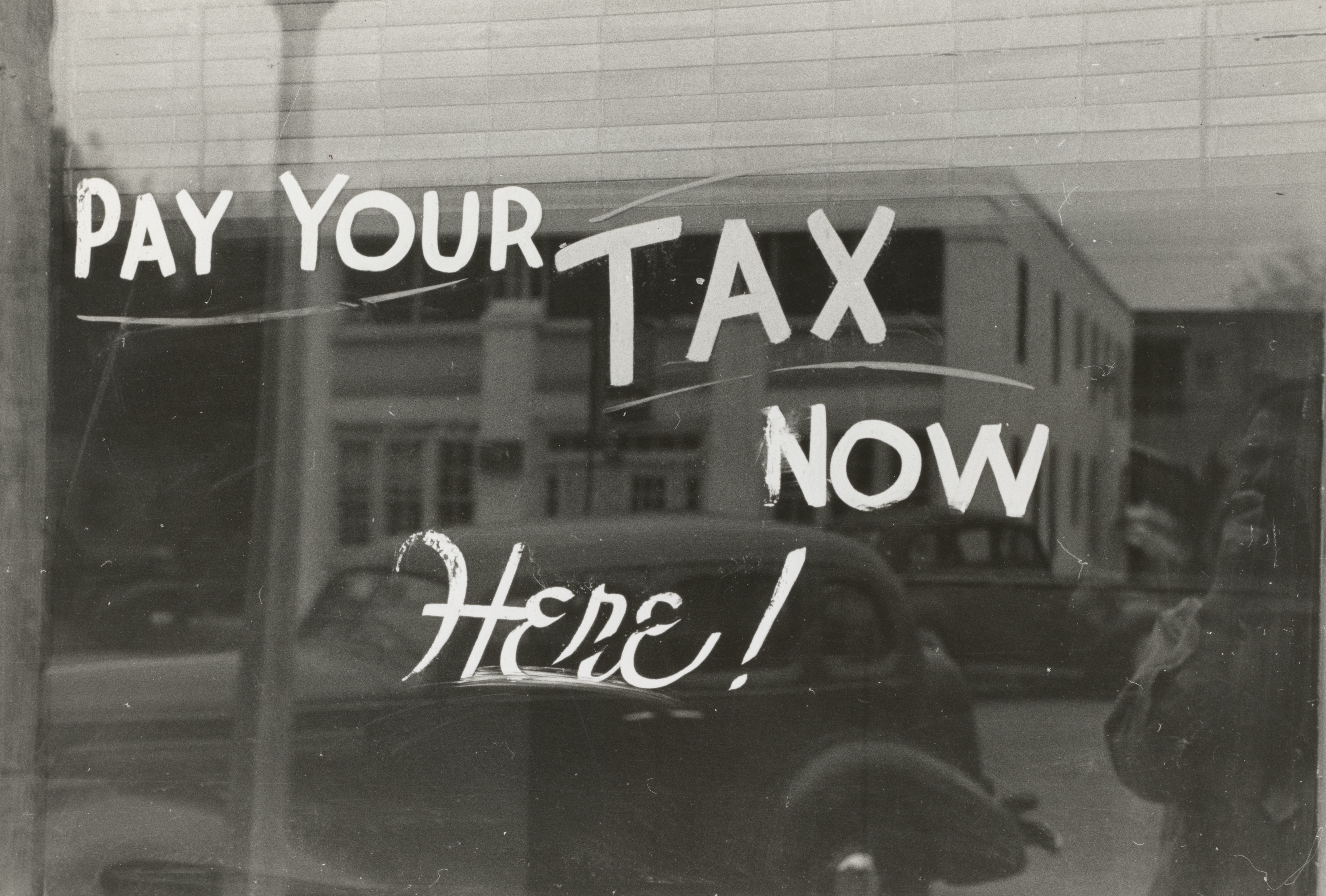In case you missed it…
You can read the TAI Weekly in translated versions. Simply click the “Translate” button located at the top right-hand corner when you view the newsletter directly on Mailchimp via “Read More” links below. Keep staying safe and healthy!
Necessity the mother of tax innovation?
|
Economic gloom only deepened this past week. First, the World Bank revealed a scary outlook for emerging and low income countries and then two days later the OECD painted a dark picture that was little better for their members. The European Union is considering funding COVID19 relief through taxation.
While projections are still being formed on the epidemic’s cumulative impact on fiscal reform in low-income countries, their ability to tax their way out will be limited. However, thought leaders on International Center for Tax and Development (ICTD) are calling for a “new deal” in international tax policy for developing nations that might help. Sanjeev Gupta and Jianhong Liu demand more scrutiny and transparency in tax expenditures in low income countries as Freetown implements a new property tax system that could quintuple its revenue in a much more progressive way.
For yet more revenue related resources, check out ICTD’S new bilingual page on tobacco taxation and new series of factsheets on West Africa, while, for its part, the Platform for Collaboration on Tax has also launched a new toolkit to help developing countries tackle the complex issues around taxing offshore indirect transfers of assets.
Of course, another way for governments to free up funds is to renegotiate their debt. Building on a G20 debt suspension agreement, Ingrid Luan reports that China has expanded its suspension of debt repayments for developing countries and regions due to the economic impact of the disease.
Yet what assurance that freed up funds will go to helping stem the pandemic and its economic fallout? Jon Temin urges bilateral and multilateral creditors to insist on transparency of the forgiven funds will be used by governments. As he argues: “The goal is not for creditors to control the spending of funds diverted from debt service, but to allow citizens to judge for themselves how their resources are being deployed.”
|
|
Not that people are passively waiting on government action. The Integrity Action team offer a variety of examples of groups finding ways to keep social accountability efforts ongoing amid the pandemic. Catherine Cheney details examples of how some non profit groups, such as Accountability Lab have made a natural pivot to COVID related responses, but reminds that it won’t make sense for all and the need to champion long held causes may be bigger than ever with attention pulled elsewhere.
That said, demands for accountability are harder when governments justify repressive tactics on public health grounds (or simply because they feel people are distracted). The media are often taking the brunt of restrictions. Sarah Biryomumaisho details new hurdles for journalists in Uganda resulting from the pandemic while Jessica Ni Mhainin details how laws are being used against journalists across Europe. The latest victims in the long list of government media oppression are Maria Ressas and her colleague Reynaldo Santos Jr, as a court in the Philippines found them guilty of cyber libel, based on an article they had written before the law was enacted. From The Guardian “In the words of the National Union of Journalists, it was a ‘shamelessly manipulated charge”, and an “act of persecution by a bully government.’”
However, concerns extend to those championing basic rights. Chloe Skinner fears a backlash against gender and social justice in the wake of COVID-19. For their part, Philip Mader, Natascha van der Zwan and Daniel Mertens suggest nine ways capitalism will be changed by the pandemic – both for the worse and for the better.
|
|
Essential Resource: What does it mean to be a learning organization focused on transparency and accountability issues? New insights from the Learning Collaborative
| Last year saw the wrap up of an experimental learning collaborative among transparency and accountability groups committed to being effective learning organizations. The insights among these hub organizations and efforts to test learning practices with a broader network of peers are now brought together in one place (courtesy of Dejusticia, host of the project coordinating team). Find lessons on how learning practices can contribute to more effective programming; how collaborations between academics, researchers and practitioners can better support learning organizations in the global south; and more! |
|
It’s all in the numbers (or is it?)

Photo from Mika Baumeister via UnsplashWhat if you can’t even find or trust numbers on the spread of COVID-19 in your country? Cover-ups are only further undermining people’s trust in government institutions. Article19 detail the risks resulting from contested official case numbers in Brazil while Aidan Eyakuze explains how the Tanzanian government has taken the approach of locking down its data – not the people – to damaging effect. There has been on new data on the virus’ spread since April 29.
Of course, there is not shortage of misinformation that fills any gap in official communication. Some of it orchestrated by well planned influence operations. Elise Thomas, Natalie Thompson and Alicia Wanless dig into the efforts (or lack thereof) of social media companies and government to turn the tide against these operations. They point to the need for clearer consideration of what constitute acceptable persuasive techniques and tactics of online engagement, and the lack of clear existing guidelines for policy development.
The private sector as a whole is waking up to the extent of data risk exposure. The Data Privacy Budget and Solutions Forecast survey by FTI Consulting reports “significant increases in spend and data privacy-related programs,” and found that 97% of organizations “will increase their spend on data privacy in the coming year.”
Will governments do enough to safeguard data on their side? An Indian government run e-payment app saw the private details of 7.3 million people leaked online – one more case to bring home the importance of data privacy as a human right meriting top priority.
With the emergence of GovTech startups, the Development Bank of Latin America released the world’s first GovTech Index which explores how to detonate innovative, data-driven startups to address public problems in Latin America, Spain, and Portugal. The index also provided 19 specific action routes for member countries wishing to develop 21st century public-private partnerships.
If the coverage of the index were extended across Europe, you’d expect the Baltic countries to top the list. As illustration, Philip Salter shares a lesson on how Estonia has been able to use its advanced use of technology to deliver common purpose since early 2000s.
Finally, Sema K. Sgaier, Vincent Huang and Grace Charles worry that using artificial intelligence (AI) to predict behavior can lead to devastating policy mistakes. They urge health and development programs to apply causal models that better explain why people behave the way they do to help identify the most effective levers for change.
|
|
Corruption as strategy
 Photo by Jayden Yoon ZK on Unsplash
Photo by Jayden Yoon ZK on Unsplash
Turning to company data, eight years ago Open Corporates did the first comprehensive review of access to corporate data across the European Union. The results weren’t pretty. Now they’ve completed a reassessment and while there is an improvement, the average score is still low and they argue those barriers to access come at a cost to EU policy and equity. Backing up the thrust of their argument, Andres Knobel’s look into how beneficial ownership is tracked around the world shows that digitalization of ownership information is a must.
On a related note, looking at the US$4 trillion generated yearly on international crime (excluding taxation), former US Treasury Special Agent John Cassara explains why tackling money laundering is important and how law enforcement is currently not doing enough about it. Meanwhile, the Congressional Research Service releases a report into the use of foreign assistance to combat corruption and flagging the challenge of clashes with other foreign policy aims. Nonetheless such assistance may be all the more necessary as some states seek to weaponize corruption as a tool of policy. Philip Zeokow, Eric Edelman, Kristofer Harrison, and Celeste Ward Gventer explore the rise of “strategic corruption” in Russian and Chinese policy for starters.
Silver – or green – lining
 Graph from Bloomberg via the BBCAmid plummeting fossil fuel prices, people will still look for advantage, legally or not. Ricardo Soares de Oliveira reminds us of the importance of tackling cross-border networks of corruption in the oil sector, a Venezuelan gold-for-gasoline scheme stretches across networks of shell companies.
Graph from Bloomberg via the BBCAmid plummeting fossil fuel prices, people will still look for advantage, legally or not. Ricardo Soares de Oliveira reminds us of the importance of tackling cross-border networks of corruption in the oil sector, a Venezuelan gold-for-gasoline scheme stretches across networks of shell companies.
Andrew Bauer of the IMF offers three proposals for mineral dependent countries to navigate the crisis while Hervé Lado digs into the Guinea context arguing for steps to prevent backsliding on mining governance commitments and Alex Malden reminds us why maintaining revenue payment transparency is still important in the current context.
At least mining companies can envisage a rebound in demand (as iron ore producers are already seeing). It is a bleaker picture for oil companies. Carbon Tracker detail how falling fossil fuel demand contributes to increased risk of stranded assets.
Interestingly, even amid the pandemic and plummeting stock values, shareholders of public companies continue to ramp up pressure on oil firms to take action on climate change, and some countries are using this as an opportunity to combat the climate crisis.
In what could be a related game changer, a committee of the US Securities and Exchange Commission is urging mandatory environmental, social and governance disclosures for firms, which could lead to some consolidation of competing standards, which for now have heightened fears of greenwashing.
Are these signs of a broader shift in attitudes? If so, interesting to try and parse out how environmental media efforts have played a role. The Media Impact Alliance detail how funding for environmental media grantmaking has gone up in the past decade and suggest it may be starting to have a cumulative impact.
There is lots of debate and change in the funder community amid the pandemic, climate emergency and now a much more visible fight for racial justice. There is the challenge of finding resources to meet such important challenges. On that front, interesting to see 5 US foundations (including two TAI members), jointly commit to find an additional $1.7+ billion for social change efforts, including through the innovative issuance of social bonds. This recognizes the pressures the non profit sector is under. It will be interesting to see what share of those funds go beyond US borders.
Then there is the question, of how to adapt the funding mindset and recognize how we have contributed to problems. EDGE Funders Alliance offer some timely resources on viewing how to respond to overlaping crises through a systemic change lens. Melissa Leach offers five ways the development sector must change in the face of injustice and inequality, including doing a better job of recognizing power dynamics within the funder world. Vu Le challenges us all to ask if we do enough to challenge those dynamics. How much incentive is there to rock the boat for those of us who have comfortable jobs in this sector?
Seth Cohen argues philanthropy has a race problem and urges a shift to community philanthropy to help redress it. How to do it? Our ex-Open Gov Hub colleague Jennifer Lentfer shares 14 concrete ways to be in action against anti-Black racism globally. The Participatory Grantmaking Collective argue that funders need to shift more to support social movements that can shift societal narratives as we are seeing happening right now. Pair that with On Think Tanks exploration of ways that think tanks can engage productively with social movements.
Finally, heading out to protest? Perhaps take a moment to secure your phone first. Increasingly, police departments around the globe use device search tools to often indiscriminately scour your phone for personal information. Take advantage of The Markup’s guide for protecting data on your phone in the event that it’s seized. |
|
TAI Spotlight: Defining Responsible Storytelling in a Digital Era
|
|
Defining Responsible Storytelling in a Digital Era | Transparency and Accountability Initiative (TAI)
Submitted by the Transparency and Accountability Initiative (TAI) to the World Economic Forum (WEF) working group on Mobilising and Inspiring Action with Technology. This brief draws on a live consultation convened by TAI and partners in November, 2019, as well as TAI’s ongoing work supporting insight, learning and adaptation by donors supporting transparency, governance and more effective, responsible uses of digital tools. The fight for inequality at the center of the George Floyd Case | Ford Foundation
Maria Torres-Springer, Vice President for US programs at Ford Foundation reflects on how the fight for equality is at the heart of the George Floyd case and offers fascinating listing of Ford grantees leading the charge from different perspectives – from pushing for accountability of law enforcement to legal defense to powering movements with data infrastructure
We stand with Maria Ressa, Reynaldo Santos Jr. and Rappler | Luminate
Luminate responds to the unjust conviction of Maria Ressa and colleague Reynaldo Santos Jr. as they state the case had ‘absolutely no legal basis.’
Q&A Designing for Human Rights | The Open Society Foundations
For rights activists trying to raise awareness about a specific issue or crisis, a published report has long been a go-to tool. Increasingly, however, the field is moving toward an embrace of digital innovations. The Open Society Information Program’s Elizabeth Eagen spoke with Brad Samuels, research director at SITU, a New York City–based design firm, about how they develop new tools to support rights campaigns.
Job listings
Job postings at Ford Foundation – Ongoing
Job postings at Luminate – Ongoing
Job postings at Democracy fund – Ongoing
Government Affairs Senior Policy Advisor, International Financial Institutions at Oxfam – Ongoing
Reset. Information control fellowship – July 1, 2020
Reset. Resident fellowship – July 1, 2020
The Citizens’ Assembly is hiring a Facilitation Co-lead for their Citizens’ Assembly on COVID-19. [Remote but across the US]
Grassroots International is hiring for Director of Development and Solidarity Philanthropy and Senior Communications Coordinator. Open until filled. [Boston]
Global Giving is hiring a Content Specialist. Open until filled. [Washington, DC]
Wikimedia Foundation is hiring a Director of Global Data and Insights. [San Francisco or remote]
Calls/Opportunities
BetterTogether Challenge for innovators – Ongoing
Call for research proposals: Tax and civil society [No Deadline]
Free Digital Security Training – Ongoing
Open Road Alliance Charitable Grant and Loan to organizations responding directly to COVID-19 – Ongoing
Call for submissions to SSIR Series: Social change in an era of extreme polarization – Last Thursday of every month until early 2021
Pulitzer Center Coronavirus news collaboration challenge – Applications will be reviewed on a first-come, rolling basis
Call for proposals: Informality, tax, and the state – Proposals accepted on a rolling basis
Change Leaders in Philanthropy Fellowship – (application opens on June 2020)
Proposal submission for the 2020 Summer Evaluation Institute – June 7-10, 2020
Marielle Franco Award for feminist essays 2020 – June 16, 2020
Open call for grants funding on social accountability and transparency in the national education sector – June 19, 2020
Call for papers: Are emergency measures in response to COVID-19 a threat to democracy? – June 30, 2020
Proposal: Working together to improve governance and anticorruption (Central and Eastern Europe focused) – June 30, 2020
Reset our future fund for organizations and people using technology, research, and education that help tackle these challenges – July 1, 2020
Apply for the Reset Surveillance Capitalism Fellowship before July 1.
IBM call for Code Covid-19 Global Challenge – July 31, 2020
Amartya Sen essay contest 2020: Illicit financial flows – August 31, 2020
Calendar
Please double check the websites for these events to make sure they are still happening – many are subject to change due to the spread of coronavirus.
Transparency International: 19th International Anti-Corruption Conference – (Postponed)
Human Rights Litigation Summer School at Berlin, Germany – June 8-12, 2020
The future of finance and banking systems in Africa beyond Covid-19 — June 9, 2020 (14:00-15:30 BST)
Women and Girls Africa Summit – June 9-12, 2020 (Durban, South Africa)
RightsCon 2020 – June 9-12, 2020 (San Jose, Costa Rica)
COVID-19 in the Global South: Economic Impacts and Recovery— June 10, 2020 (9-10:15am PST)
(Webinar) Le Machines: How Disinformation Threatens Democracy and How to Save It – Jun 10, 2020 11:00 AM in Eastern Time (US and Canada)
How foundations are shaping policy during COVID-19 – June 11, 2020 (2:00pm to 3:00pm ET)
How to be anti-racist in the aid sector – June 16th 1700-1830 GMT
Fighting Corruption to Achieve the SDGs (Registration page) [Featuring TAI members Chandler and Ford foundations] – June 18th, 1pm ET
Security Sector Reforms and COVID-19: Why anti-corruption matters more than ever. – June 18, 2020 (12:00-13:00 GMT+1)
The State of Global Human Rights – June 24/25 (Depending on time zone) 8pm ET US.
2020 Neighborhood Funders Group National Convening (philanthropy support to grassroots power building) – June 29 – July 1, 2020 (Washington, DC)
WE EMpower UN SDG Challenge 2020 – September 18 – 27, 2020 (New York City, United States of America)
The 2020 Journalism Funders Gathering (funder-only gathering) – October 6-7, 2020 (Philadelphia, United States of America)
Humanitarian and Development Data Forum – November 2-4, 2020 (Chambery, France)
International Open Data Conference –November 18-20, 2020 (Nairobi, Kenya).

 Photo by Jayden Yoon ZK on Unsplash
Photo by Jayden Yoon ZK on Unsplash
 Graph from Bloomberg via the BBCAmid plummeting fossil fuel prices, people will still look for advantage, legally or not. Ricardo Soares de Oliveira reminds us of the importance of tackling cross-border networks of corruption in the oil sector, a Venezuelan gold-for-gasoline scheme stretches across networks of shell companies.
Graph from Bloomberg via the BBCAmid plummeting fossil fuel prices, people will still look for advantage, legally or not. Ricardo Soares de Oliveira reminds us of the importance of tackling cross-border networks of corruption in the oil sector, a Venezuelan gold-for-gasoline scheme stretches across networks of shell companies.

